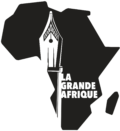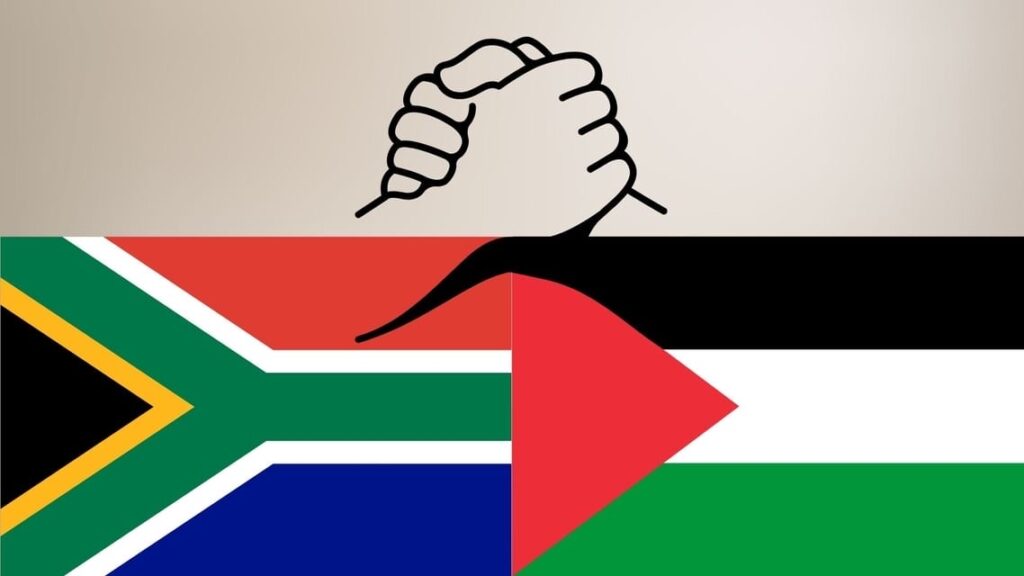On May 10, Pretoria once again appealed to the International Court of Justice (ICJ) “to put an end to the Israeli military operation in Gaza”, which it considers to be aggravating the “genocide” already underway there. This South African complaint comes just a few days after the organization of “the first world anti-apartheid conference for Palestine” in Johannesburg, inviting “intellectuals and politicians from all over the world”. Many of us may wonder why the rainbow nation is so seized of the Palestinian issue. What makes South Africa different from the rest of the world in this respect? This article presents apartheid as the frame of reference that connects the trajectories of South Africa and Palestine insuch a particular way.
South Africa under apartheid: a regime closely linked to Israel
What fundamentally distinguishes the rainbow nation from “other nations that have paid the price of colonialism” is the system o f apartheid that has cemented its destiny over t h e past half-century, granting the white minority rights and privileges inaccessible to others; and especially to the black majority. Apartheid is understood here as “a system of oppression and domination of one racial group over another, institutionalized through discriminatory laws, policies and practices”. It was institutionalized in the 1948 constitution, the symbolic date when “both apartheid South Africa and Israel were born”. Far from constituting separate realities, these two entities helped each other, for yes, “Israel supported the South African apartheid regime economically, politically and militarily”. Under the former regime, “South Africa was one of the first states to recognize Israel”, while in 1953, “its Prime Minister, Daniel François Malan, was the first foreign head of government to visit”. This relationship can also be viewed from a religious angle, since at the time, at least some Afrikaners (white South Africans) “saw Israel as another small nation, surrounded by enemies”, for whom “the Bible” was seen as “vital” to its survival, and which should therefore be supported as a “Nation of the Book”. As even Prime Minister John Vorster admitted in 1971, Zionist power was a special ally for the racist South Africanregime: “We view Israel’s position and problems with understanding and sympathy. Like us, they have to deal withterrorist infiltration on the border, and like us, they have enemies determined to destroy them”. Worse still, Israel was considered in 1986 as “the only democratic nation […] which abstained from the majority of sanctions which the international community imposed on the South African apartheid regime”.
The convergence of two resistances
Apartheid was abolished in South Africa only after intense mobilization (marches, boycotts, etc.), mainly by the country’s black community, for over forty years. Although this aspect seems to be under-documented, the Palestinians did indeed respond to their side, even though they were also living in parallel under the yoke of injustice. This rapprochement between the struggles of Palestinians and black South Africans revolved around two emblematic figures: Nelson Mandela and Yasser Arafat. At the end of the 1970s, the leader of the PLO (Palestine Liberation Organization) did not hesitate to pay a visit to South Africa, then under apartheid, marking his support forhis South African counterpart and laying one of the first milestones in this great friendship which, beyond the two individuals, symbolizes a progressive fraternization of ties between the Palestinian and South African resistance. A powerful rapprochement that explains why “the main black South African players have always considered the struggle for freedom and self-determination to be the same as that of the Palestinians after Nelson Mandela was released from prison” in 1990. “We know only too well that our freedom is incomplete without the freedom of the Palestinians”: South Africa’s first post-apartheid president couldn’t have done a better job of setting in stone Pretoria’s growing attachment to the liberation of Palestine, and passing this commitment on to the next generations. As proof of this,his great-grandson Mayibuye Melisizwe Mandela himself recalled the Palestinians’ support for his oppressed people’scause: “They gave support and inspiration to our anti-apartheid movement, offering invaluable moral and political support. Their unwavering commitment to justice resonated with us and encouraged our efforts to put an end toapartheid”.
A post-apartheid South Africa learning the lessons of its past.
Although Pretoria is by far Tel Aviv’s most important economic partner on the African continent, the rainbow nation has not forgotten its painful heritage. With the ANC (African National Congress) having fought the former apartheid regime, which was friendly to Israel, and being the party in power since the first free election in 1991, political support for the Palestinian cause has quite naturally been maintained at the top of the state to this day, despite a period of cooling with its Arab ally in the interim. Nor does the fact that South Africa has the largest Jewish community in Africa, with almost 51,000 nationals. There’s no need to confuse the two, and Pretoria has understood: the Israeli drift it denounces is one thing, the South African Jewish community and Judaism are quite another.
Palestinians continue to suffer injustice, repression and massacres. Israel’s system of apartheid, finally recognized by Human Rights Watch (2021) and Amnesty International (2022), is unique in that it extends beyond the territory recognized by the UN as Israel’s territory. As Tel Aviv continues to control and colonize more and more Palestinian land, its repressive arsenal (legislative, political and military) against the indigenous population simultaneously extends there. In other words, beyond Israeli Arabs, a Palestinian living in the West Bank or East Jerusalem is in no way exempt from Israel’s apartheid policy, even though he or she is in Palestinian territory under international law. This is because, in reality, the Zionist regime controls the entire disputed area, including the Golan Heights, which belong de jure to Syria.
Pursuing Israel through the political and judicial arena has (over and above the reasons given for doing so) a highly symbolic significance for South Africa, given the historical antecedent linking Tel Aviv to the South African apartheid regime. Buoyed by its history of resistance to apartheid, South Africa stands out from the rest of the international community in the current context. In a ministerial discussion, the Minister of International Relations, Naledi Pandor,left no doubt on the subject: “Those of us who are free from apartheid can never consent to any form of oppression linked to it. We cannot tolerate that. Last January, Pretoria therefore took Israel to the ICJ to bring it to justice for “genocidal acts”. In The Hague, the declaration of its ambassador to the Netherlands, Vusimuzi Madonsela, was enough to make the walls tremble: “as South Africans, we feel, see, hear and sense in the depths of our being the inhuman discriminatory policies and practices of the Israeli regime as an even more extreme form of institutionalized apartheid against black people in my country”. Provisional measures were eventually issued by the judges, vindicating Pretoria and sending a strong signal to non- Western countries, many of which see international justice as “not universal buthemispheric”, based on a double standard favoring the West. On May 16, the ICJ held public hearings for the second time, after being requested to do so by the South African delegation, this time asserting that Israel is committing“genocide” by massacring at least 35,000 Palestinians in the Gaza Strip, which it is reducing to a field of ruins. It is also worth recalling that South Africa actively participated with Algeria in the attempt to oust Israel from the African Union(AU) summit in 2023. This has been the case since last February, when the AU “definitively outlawed” Tel Aviv inthe light of the above-mentioned events.
It’s imperative to pursue this line of thought. But instead of just asking why South Africa is so committed to the Palestinian cause, shouldn’t we be questioning the mechanisms at work that have so far led the rest of the international community to so feverishly support Palestine in its unwavering quest for freedom and independence?

